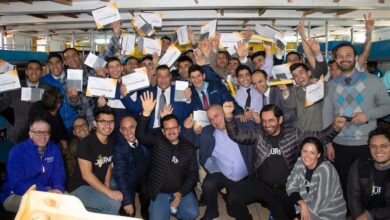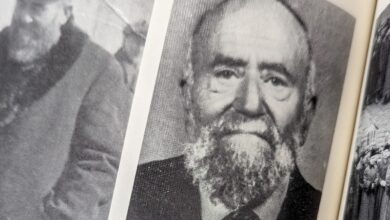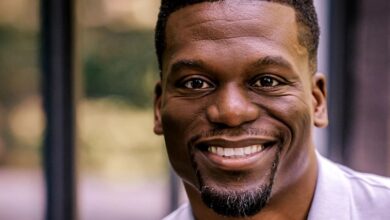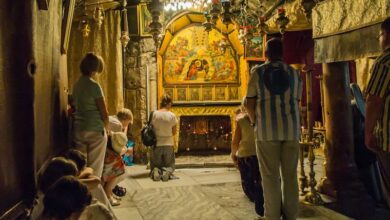Commencement speech faith remarks by Christian school board member defended by Muslims
A Wisconsin school board member is being supported by Christians and Muslims after he was criticized for mentioning his faith during a high school commencement speech.
Alvin Dupree is a school board member in the Appleton School District and a pastor in the community. He delivered his speech last Thursday during Appleton North’s high school graduation ceremony and mentioned he derives his strength from Jesus Christ.
A 30-second portion of his 10.5 minute speech apparently rattled some students for mentioning Jesus:
“As the principal mentioned whatever your source of strength is, you lean on it. Never let anyone make you hide it. For me, my source of strength is my faith and my relationship with Jesus Christ..(cheer) Sounds like I’ve got some believers in this room. If you are here and you believe that, go ahead and clap your hands. Never succumb to the pressure of being politically correct. Be you, wherever you go. Be you.”
The U.S. Supreme Court declared in the landmark case, Tinker v. Des Moines (1969), that students do not “shed their constitutional rights to freedom of speech or expression at the schoolhouse gate.” And, by proxy, law experts have extended that to the free speech rights of employees of school districts and colleges.
And federal law says that as long as a student is responsible for writing their own commencement speech, their school cannot discriminate against them for including prayers or religious references.
But even though the law protects students’ free speech rights, many local officials and school administrators appear to not know, or blatantly ignore, the law.
On Tuesday, several students sent a letter to the school board complaining that Dupree’s commencement speech ostracized those who did not align with his views. And they said his comments made minority groups in the crowd feel uncomfortable. Also, they said he undermined the work the school district has done to be more inclusive of diverse cultures and attitudes.
.
Pastor Dupree is a retired US Marine who fought in the Afghanistan War in 2010. He says the battle he is now facing back home is the hardest one he has had to fight – perhaps even more difficult than avoiding injury or death from three IED strikes in Afghanistan.
“This is totally one of the most roughest wars that I have been in. However, it is not about me. It’s about the kids, it’s about the community, it’s about the ability of our country to stand firm on the ability of all to be able to exercise their freedom of speech,” Dupree insisted.
The pastor isn’t just getting support from Christians in the community, but Muslims as well, who fear a secularization of society will force all speech about faith out of the public square.
Before Dupree spoke, a Muslim student delivered a commencement address while wearing a hijab. Her speech was also well-received by students and school officials applauded her but her speech was also reviewed and possibly censored by school staff.
Dupree said he is concerned that her free speech rights and those of people of other faiths are also at risk.
He said the a local Muslim cleric approached him after the commencement speech and expressed a similar concern and support for his free speech rights.
“He and I have formed a bond because of the fact that he felt it is important to be able to speak up about your faith…and even after having conversations with the father of the young lady, there were concerns that even her speech as a student was somehow modified to remove references to her religion,” explained Dupree.
The students want the Appleton school board to review future commencement speeches and turn off the microphone if speakers go off script.
Appleton schools Superintendent Judy Baseman said the district’s practice has always been to have one school board member and one member of the administration attend each of the three commencement ceremonies.
While student speeches are reviewed and rehearsed ahead of time in a process led by the high school’s principal, Baseman said the board member is customarily given a closing statement prepared by the district and there is no formal policy that specifies that they must read it or what they may speak about in their own speech.
At the end of his speech, Dupree abandoned the district’s closing and instead said: “Now it was typed out to say ‘best wishes,’ but I’m changing it to say what I would say, God bless.”
Speaking on behalf of the student group, William Scheffler told USA TODAY NETWORK-Wisconsin that he felt uncomfortable during Dupree’s speech and later heard from many other students that felt the same way.
Scheffler said the students respect Dupree’s personal religious beliefs and appreciate the district’s efforts in recent years to be inclusive of diversity.
However, they also believe that a representative of the district speaking about religion at a public school event cannot be considered freedom of speech, but is instead a violation of the Constitution’s Establishment Clause.
Dupree says he has retained an attorney who is ready to meet with the school board to respond to any action members may take against him.
“I am 100 percent firm that I will continue to speak about my faith as an individual without trying to impose it upon anyone, nor will I allow anyone to try to force me to be silent…”
–Metro Voice Staff








